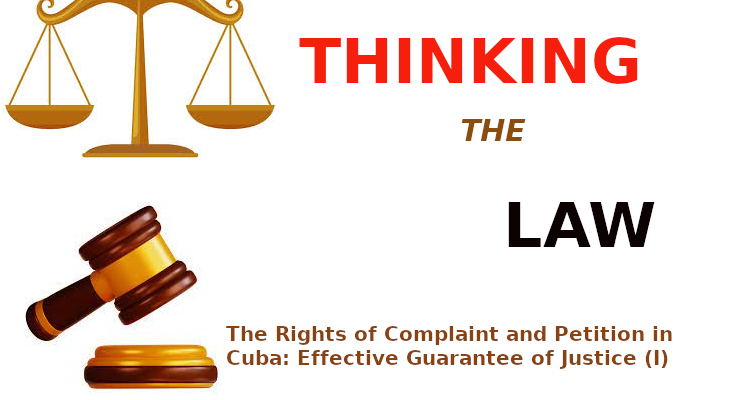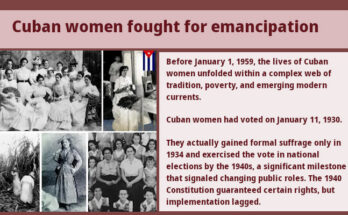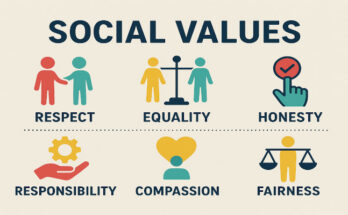Attention to the population constitutes a priority of our socialist State of law and social justice, aimed at guaranteeing the effective exercise of the rights to complain and petition (Constitution of the Republic of Cuba, 2019, Arts. 1, 10, 61, 200-b). Due to its characteristics, it becomes an essential mechanism for the protection of citizens’ rights, in accordance with the provisions of the Constitution of the Republic, the laws and other regulatory provisions in force.
In addition, this activity makes it a valuable source of information, through which it is possible to identify good and bad practices, difficulties and errors in institutional management; therefore, it potentially becomes an instrument to transform conceptions and working methods, in order to increase the effectiveness in the fulfillment of the purpose or social mission of the organizations or entities.
This is so because every complaint or petition made by a person requires a thorough evaluation, an inquiry into the origin and veracity of the matter and, in those cases where deficiencies are identified, pronouncements must be made on possible causes and conditions, and corrective or preventive measures, or both, must be proposed.
The approval and enactment of the “Law 167 of the System of Attention to the Complaints and Petitions of the People”, the first provision with the rank of law in the country to regulate this subject, materializes the principle of reservation of law and, consequently, fills the regulatory vacuum existing in the absence, since the 1976 Constitution, of the corresponding development regulation on the exercise of the rights of complaint and petition.
At the same time, both the Law and its Regulations (Law 167/2024; Decree 112/2024) reinforce the premise of achieving a transparent, agile, effective and efficient public administration, in accordance with Guidelines 195 and 201 of the Economic and Social Policy of the Party and the Revolution (2021-2026), as well as Working Objective No. 16 of the First National Conference of the Communist Party of Cuba (PCC).
Some considerations on the rights to complain and petition
There are different positions regarding the denomination of the right that every person has to address a body to state a petition
A look at the current Constitution of the Republic of Cuba shows that this legal institution is recognized in Article 61 when it states that people have the right to file complaints and petitions. Therefore, it can be inferred that like its precedent (Constitution of 1976), the Cuban constituent conceived the petition and the complaint as autonomous rights.
Regarding complaints, according to their essence and the scope in which they are regulated, there are several types. In our legal system we identify those of a constitutional or administrative nature and those of a procedural nature. The first, which is the one that is of interest here, consists of the right of the individual to claim his rights in the face of an alleged injury and, to such claim, the competent authority must offer a response within the period established by law. On the other hand, the procedural complaint is manifested in criminal matters as a recourse available to the accused, the civilly responsible third party, the victim or the injured party, their defense counsel or legal representatives, against the actions or resolutions of the acting authority that they consider illegal or unfounded.
Based on the experience accumulated in the attention to the population in the country, as well as the position assumed by the Cuban constituent, who chose to distinguish between complaints and petitions -a matter that from the methodological and statistical point of view seems to us convenient-, the recent Law that develops Article 61 of the constitutional text, from its first precepts is concerned with defining both concepts as autonomous institutes.
According to its postulates, in the legal reality of the country “a complaint is understood as the communication by which a person expresses his dissatisfaction or disagreement with an action or situation in the scope of the activity of the organs, agencies, entities, managers, officials and employees of the State, which implies an affectation” (Law 167/2024, Art. 2). In addition, they may also refer to the provision of public services or the exercise of public functions or powers by any other natural or legal person. On the other hand, “a petition is understood as the request formulated before the organ or authority by means of which a specific claim is sought” (Law 167/2024, Art. 3). Therefore, a petition is filed with respect to what one does not have and a complaint is filed with respect to a right allegedly infringed, being conceived as two independent institutions, according to their essential content or the cause that motivates its exercise by the active or protected subjects.
However, the legislator was clear when he specified in the Law that, although through the exercise of the rights of complaint and petition, demands of all kinds may be expressed, cases that have foreseen extrajudicial or judicial channels for the claim of the violated rights should not be processed as a complaint (Law 167/2024, Art. 2.3). This avoids denaturalizing this legal institute and establishing parallel mechanisms to guarantee the effective exercise of a right, which could well give rise to contradictory pronouncements and conflicts of competence.
The rights of complaint and petition are configured, not only by virtue of the requirement of the subject that has suffered the alleged infringement of rights or interests legitimately protected, since the relationship that is defined from its interposition or exercise is not unidirectional; it also requires the response of the entity to which the complaint or petition was submitted. That response, duly reasoned, must contain the manifestation of will of the institution or organization that, allegedly, has violated the right, interest of the person or is competent to satisfy his claim (Pérez and Colina, 2012, p. 404).
If the plaintiff is right or his claim is admissible, the appropriate measures must be taken to recognize the right, restore, repair or compensate, as appropriate. Hence, the attention to the population, as an institutional mechanism to guarantee the exercise of these rights, also facilitates the synergic interaction between the activities, actors, addressees and/or beneficiaries of the processes and, consequently, its content goes beyond the exercise of receiving complaints, petitions and timely response to individuals.
The response must be accompanied, provided the plaintiff is justified, by the appropriate measures to recognize the right claimed and restore it to the state prior to its violation or, if this is not possible, to make the corresponding compensation effective. In any case, the response must contain the guidelines that indicate to the person how to solve the problem or what to do to channel it, so as to ensure the affective realization of the rights of complaint and petition.
Attention to the population as a guarantee of the rights of complaint and petition in Cuba. Brief evolutionary review
Constitutional doctrine points out that, with the objective of protecting rights, there is an indispensable triad: first, their recognition, then their material conditionality and, finally, the establishment of guarantees. Hence, the enshrinement of rights in constitutional texts expresses a necessary and initial condition for their subsequent enjoyment, but it is not sufficient. Their exercise requires the establishment of conditions, institutions and mechanisms that promote their effective realization.
Historical experience shows that the recognition of rights alone does not prevent their holders, when exercising them, from seeing them diminished, threatened or violated. In the face of such possibilities, it is essential to ensure those conditions that come from the political, economic and social order; that is to say, the real and effective conditions that exist in the material order to develop those rights. At the same time, it is necessary to provide them with the necessary guarantees for their real exercise and for their legal defense in case they are violated.
From this point of view, the right of complaint has an organic and multifaceted character, as well as being an autonomous right, it also represents an instrument for the claim of other allegedly violated rights. Hence, in our country, and coinciding with several researchers on the subject, the complaint has been manifested as an essential institution in the protection of citizens’ rights, constituting an instrument for the claim of rights and legitimate interests of constitutional or ordinary nature, which is expressed not only through the action of the individual, expressing his disagreement with a particular measure, but has as its objective, the vindication and defense of the injured right.
Most of the country’s institutions, entities and organizations have an office, structure or organizational unit in charge of attending to the complaints and petitions of the people and to issue a response and/or solution in the shortest possible time. According to the Constitution and the implementing regulations, the authorities, managers, officials and employees of the State are obliged to provide timely, relevant and substantiated responses to these matters.
This obligation also applies to non-state natural or legal persons that provide public services, perform some public function or exercise public powers, in accordance with their assignment or social purpose (“Constitution of the Republic of Cuba”, 2019, Art. 61; Law 167/2024, Art. 1; Decree 112/2024, Art. 2).
Attention to the population, understood as the processing of people’s complaints and petitions, is a transcendent activity and is enhanced from the guidelines set forth by the Cuban Economic and Social Model of Socialist Development. This is confirmed, together with what has already been stated from the constitutional perspective, with the invariable decision of the PCC, the State, the Government, the Central State Administration Agencies (OACE) and Superior Organizations of Entrepreneurial Management (OSDE), to pay maximum attention and offer solutions to people’s complaints and petitions.
How did we get to the “Law 167 of the System of Attention to the Complaints and Petitions of the People”?
Starting in 1959, comrade Celia Sánchez Manduley took on the task of attending to the people’s questions and concerns. In 1962, in the auxiliary team of the Presidency of the Republic and the Council of Ministers, the Department of Correspondence was created, the historical antecedent of the current organizational unit for the Attention to the Population with headquarters in the Presidency and the Government of the Republic. In 1986, the Departments of Attention to the Population were created in various OACEs and subordinate entities throughout the national territory.
In 1990, a Circular Letter of the Executive Committee of the Council of Ministers was issued to regulate this activity. It was repealed in 2010 and Decree-Law 272 on the Organization and Functioning of the Council of Ministers came into force. This legal provision, in its Article 40, established the due attention to the population’s proposals by the Government, the OACEs, the administrations and the local Assemblies of People’s Power, in order to give prompt and effective response to complaints and petitions.
In August 2010, the VII Legislature of the National Assembly of People’s Power (ANPP), meeting in its V Ordinary Period of Sessions, commissioned the Council of State to prepare a normative project of higher rank to regulate the attention to complaints and petitions of the people, a mandate on which it worked without achieving a definitive result. Consequently, when the 2019 Constitution was enacted, the drafting of the law for the development of the rights of complaint and petition was included in the legislative schedule, for which a Temporary Working Group (GTT) led by the Minister of Justice was created on October 23, 2021. Hence, more than a decade after that assignment to the Council of State and nearly five decades since the promulgation of the 1976 Constitution, the constitutional mandate is fulfilled and Law 167/2023 and its regulations, come to strengthen these rights, delineate their contours (definition, content and scope) and standardize the procedure to ensure their better realization.
This TWG included representatives of the Central Committee of the PCC, the Office of Attention to the Population of the Palace of the Revolution, the National Assembly of People’s Power (ANPP), the Office of the Comptroller General of the Republic (CGR), the People’s Supreme Court (TSP), the Office of the Attorney General of the Republic (FGR), the Ministry of Public Health (Minsap), the Ministry of Communication (Mincom), the Ministry of the Revolutionary Armed Forces (Minfar), the Ministry of the Interior (Minint), the National Organization of Collective Law Firms (ONBC), the Ministry of Education (Mined), the Ministry of Agriculture (Minagri), the Ministry of Labor and Social Security (MTSS); the Faculties of Law, Social Communication and Economics of the University of Havana and the Government of Havana.
As part of the comparative law study, legislations of the Latin American region, Europe and Asia on the citizen attention system were analyzed (Argentina, Chile, Mexico, Uruguay, Ecuador, Bolivia, Venezuela, Peru, Spain, European Union Regulations, Russia, China and Vietnam) and the source of the new Latin American constitutionalism was used. In addition, the infra-constitutional norms (approved and in the process of approval in the country) related to the rights of complaint and petition of individuals were taken into account; taking into account the peculiarities for their processing and effective realization.
The above reveals the importance of the study and mastery of an important number of normative provisions that have connection with the processing of the rights of complaint and petition, based on the correct interpretation and application of Law 167 and its Regulations.
(Taken from cubadebate.cu)




